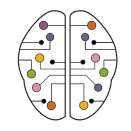Speed and depression
Are speed and depression linked?
Dear DoctorX,
I´ve wanted to know if somebody has a depression on the base of drugs like speed nearly 2 till 3 gramm a day,
after a few years u can lose this drug- induced depression or it´s changed the hole personalitiy as u think you ´re the same as before?
The prolonged and high-dose consumption of stimulants, such as speed, can lead to psychological problems during use and in the weeks and months following withdrawal. The withdrawal symptoms of stimulants can cause depression.
Depression and other mental health issues are rarely caused by a single factor but rather by a combination of factors. It is unlikely that depression lasting for years is solely due to prolonged stimulant use. There are likely to be other contributing factors.
On the other hand, some individuals may use illegal drugs as a means of self-medicating for mental health problems or life’s challenges. However, this approach is not usually effective in the long term.
In reality, drugs, including both legal psychotropics and controlled substances, cannot cure depression. Antidepressants can provide individuals with the means to cope with their problems, but no pill can heal the problems of the brain, psyche, spirit, or soul

Thanks
Thanks for feedback
Please provide me an example on what you consider "dubious"
I share your level of appreciation for the work you've produced. The sketch you've displayed is elegant, and the content…
Somebody essentially help to make significantly articles I'd state. This is the first time I frequented your web page and…